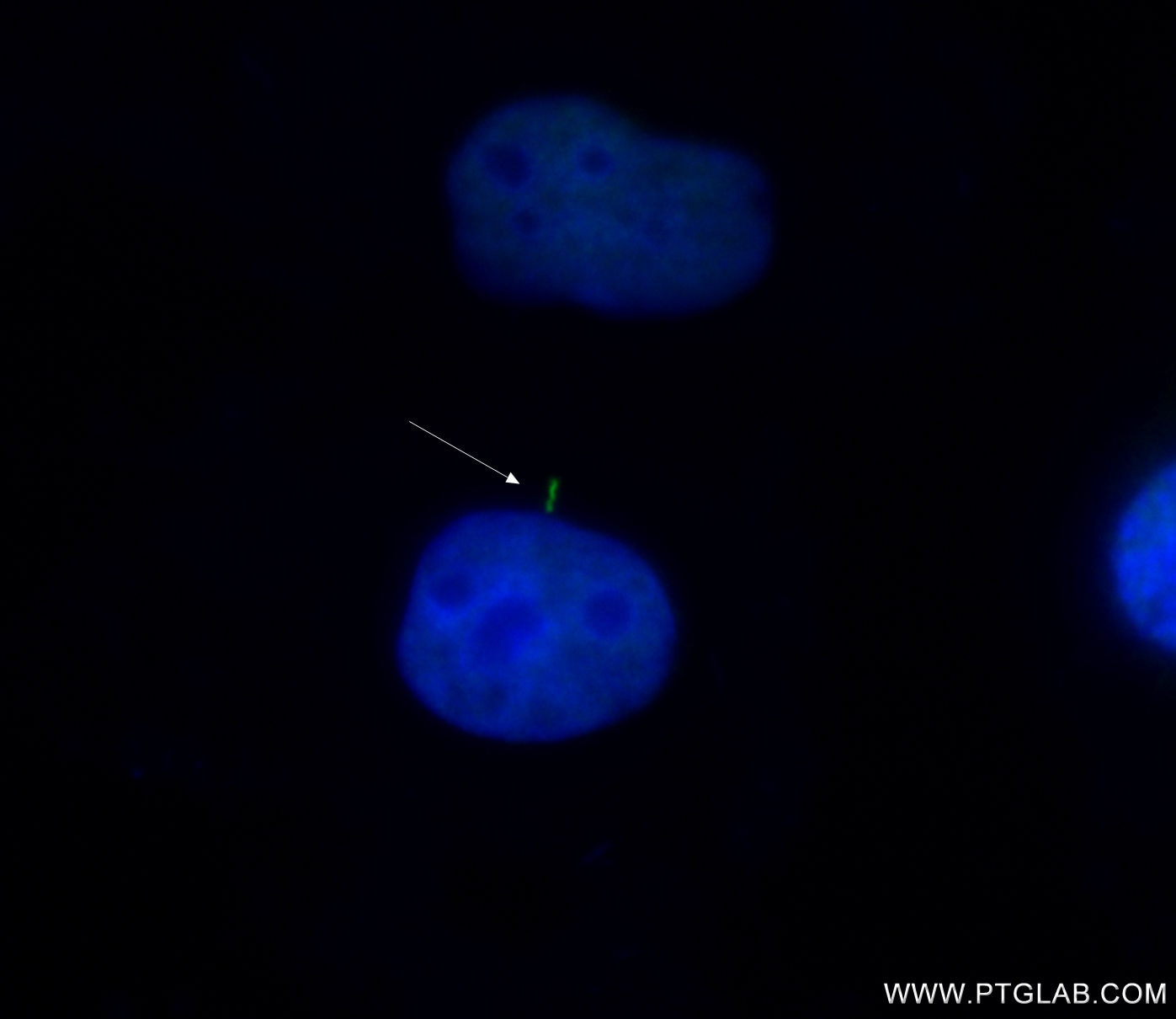Validation Data Gallery
Filter:
Tested Applications
| Positive IF/ICC detected in | MDCK cells |
Recommended dilution
| Application | Dilution |
|---|---|
| Immunofluorescence (IF)/ICC | IF/ICC : 1:50-1:500 |
| It is recommended that this reagent should be titrated in each testing system to obtain optimal results. | |
| Sample-dependent, Check data in validation data gallery. | |
Product Information
CL488-66851 targets SMO in IF/ICC applications and shows reactivity with Human, Canine samples.
| Tested Reactivity | Human, Canine |
| Host / Isotype | Mouse / IgG2b |
| Class | Monoclonal |
| Type | Antibody |
| Immunogen | SMO fusion protein Ag25861 相同性解析による交差性が予測される生物種 |
| Full Name | smoothened homolog (Drosophila) |
| Calculated molecular weight | 787 aa, 86 kDa |
| GenBank accession number | BC009989 |
| Gene Symbol | SMO |
| Gene ID (NCBI) | 6608 |
| RRID | AB_2883387 |
| Conjugate | CoraLite® Plus 488 Fluorescent Dye |
| Excitation/Emission maxima wavelengths | 493 nm / 522 nm |
| Form | Liquid |
| Purification Method | Protein A purification |
| UNIPROT ID | Q99835 |
| Storage Buffer | PBS with 50% glycerol, 0.05% Proclin300, 0.5% BSA , pH 7.3 |
| Storage Conditions | Store at -20°C. Avoid exposure to light. Stable for one year after shipment. Aliquoting is unnecessary for -20oC storage. |
Background Information
Smoothened (SMO) is a G protein-coupled receptor that is a component of the hedgehog (Hh) signaling pathway and is conserved from flies to humans. The Hh pathway plays central roles in animal development and stem-cell function. Defects in Hh signalling lead to birth defects and cancer in humans. Expressed on the primary cilium, SMO interacts with the patched protein, a receptor for Hh proteins.
Protocols
| Product Specific Protocols | |
|---|---|
| IF protocol for CL Plus 488 SMO antibody CL488-66851 | Download protocol |
| Standard Protocols | |
|---|---|
| Click here to view our Standard Protocols |
